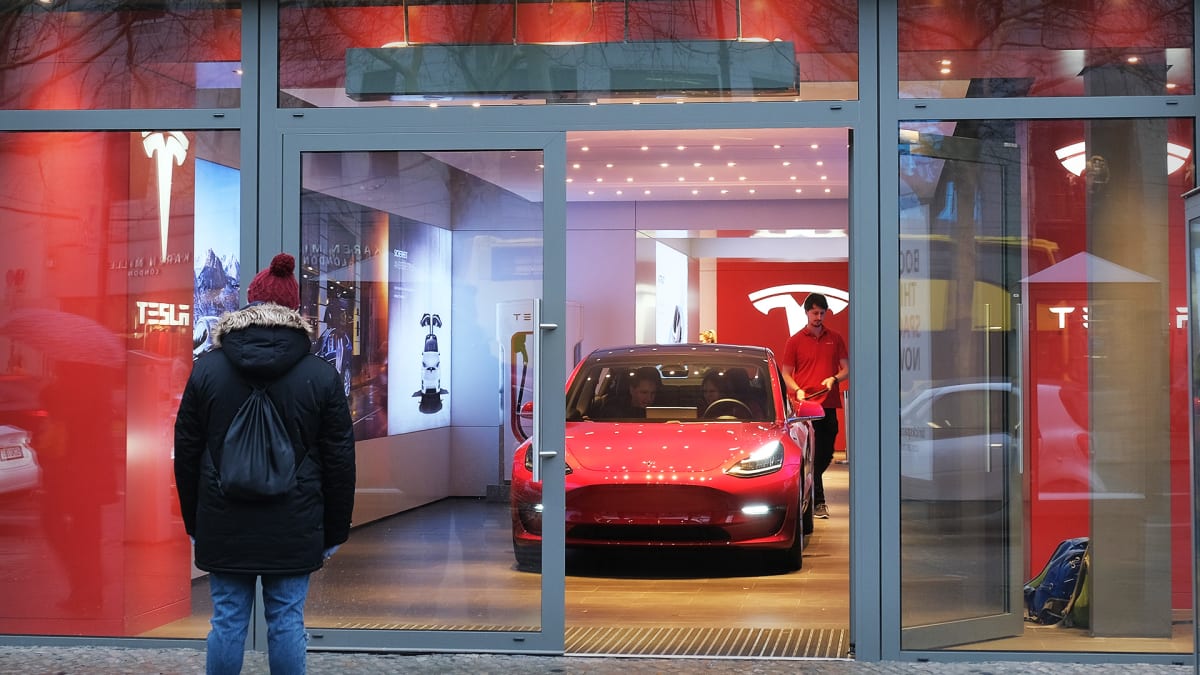
Tesla (TSLA) could find itself impacted by the U.S. banking crisis over the coming months, sparking another round of price cuts that would eat into its profit margins, according to Morgan Stanley analyst Adam Jonas.
Jonas, who carries an overweight rating on Tesla stock with a $220 price target, argues in a note published Monday that "EV price cuts are not a fad, but a trend.
He says the Austin group is likely to lead the way with aggressive price points that protect both its market share and the potential for recurring revenue from its installed base of vehicles.
But Jonas also notes that the simmering U.S. banking crisis, which has already claimed Silicon Valley Bank and Signature Bank and is currently lapping at the doorway of First Republic, will further pressure vehicle prices as financing becomes increasingly difficult.
"Recent events in the global banking world may drive tighter lending standards and may have an adverse impact on financial institutions’ willingness to fund car purchases at the margin," Jonas said. "We are prepared for price cuts to be an established ‘feature’ of the global EV market."
Tesla's Gross-Margin Goal Challenging: Jonas
Jonas says Tesla's goal of a minimum automotive gross margin of 20% over the first three months of the year "may prove difficult to defend in subsequent quarters in the event of continued downward price competition and slowing economic growth following recent events in the global banking sector and knock-on impacts on the consumer."
Tesla shares were marked 0.43% higher in early afternoon trading Monday to change hands at $191.23 each, a move that would extend the stock's year-to-date surge to around 57%.
Short interest in Tesla shares remains elevated, however, with bets against the group pegged at around $16.42 billion, according to recent data from S3 Partners. The figure represents around 3.3% of the group's shares outstanding. (Short interest reflects bets that a stock's price will decline.)
Price cuts have already cut into Tesla profit, with automotive gross-profit margins narrowing to 25.9% over the three months ended in December. That's the lowest in two years and a narrowing from the 27.9% figure recorded over the third quarter.
Chief Executive Elon Musk put the margin pressures down to battery-production costs, the ramp up of factories in Berlin and Texas, higher commodity costs and price cuts.
"Price really matters for EV sales," Musk told investors on a conference call after the company's earnings report. "Our price cuts will make a difference to the average consumer looking to buy a Tesla. Our goal is to make our cars as affordable as possible."
Tesla's Price Cuts, in China and the U.S.
Tesla last October began cutting the price of its Model 3 and Model Y vehicles in China, with similar reductions unveiled in the U.S. shortly thereafter. The company then deepened them earlier this month after the group posted disappointing December-quarter delivery figures.
Tesla reduced the starting price of its Model 3 sedan by around 13.5% in China, according to data from its website, and lowered the price of its Model Y by around 10% to 259,900 yuan, the equivalent of around $37,660, as it dealt with increasing competition from China-based rivals in the world's biggest car market.
"The Chinese market is the most competitive. They work the hardest and they work the smartest," Musk told investors last month. "I have a lot of respect for the China car companies that we're competing against."
"As the world transitions from an inflationary to deflationary environment, we expect a strong partnership with our suppliers on this journey as well. In that, we've priced our products with a view toward a longer-term cost structure," Chief Financial Officer Zach Kirkhorn told investors following the group's fourth-quarter earnings in January.
"Thus, there will be an impact on operating margin in the near term. However, we believe our margins will remain healthy and industry-leading over the course of the year."
Analysts at Elazar Advisors, in fact, see Tesla's gross automotive margins narrowing to below 20% by the third quarter of this year, with a dip below 19% over the final three months of 2023.
"There is no reason to drop prices if you are maxed (in terms of near-term demand) ... unless of course they have a demand problem and you are no longer maxed," said Elazar's Chaim Siegel.
"With lower estimates for deliveries, it appears they have a demand problem. Lower units, lower prices, typically means lower margins and lower earnings.'
Get investment guidance from trusted portfolio managers without the management fees. Sign up for Action Alerts PLUS now.







